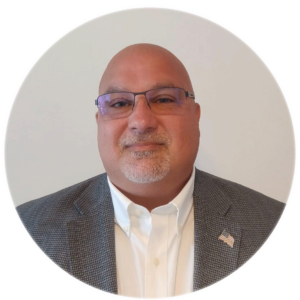Hospice care is meant to give comfort and dignity to patients during life’s most vulnerable moments. Sadly, healthcare fraud has found its way into this compassionate system, jeopardizing patient well-being and siphoning resources from where they are truly needed. Hospice fraud is not just a financial crime. It also takes a deep toll on patients, families, and the integrity of care.
Healthcare professionals are uniquely positioned to recognize and halt this unethical behavior. By learning to identify suspicious activity and how to properly report healthcare fraud, you can play an essential role in protecting patients and ensuring the system serves those who need it most.
This guide explores what hospice fraud is, common schemes, red flags to watch for, and how healthcare workers can take action confidently and effectively.
What Is Hospice Fraud?
Hospice fraud refers to unlawful practices that manipulate the Medicare or Medicaid hospice benefit to gain undeserved financial reimbursement. This includes enrolling patients who are not terminally ill, fabricating medical care, inflating the billable level of care or paying kickbacks to referral sources. Fraudsters exploit America’s hospice system, often at the expense of vulnerable patients who require genuine end-of-life care.
For instance, certain schemes involve certifying patients as terminally ill when they aren’t, or billing Medicare for a high-cost “continuous home care” rate when only routine services are provided. These actions not only waste funds, but also leave patients and families misled and underserved.
Common Hospice Fraud Schemes
Fraud in hospice care takes on numerous forms, many of which come at the cost of patient trust and safety. Here are some of the most common schemes to watch for:
- Kickbacks for Referrals: Hospice organizations offer gifts or payments to physicians and facilities in exchange for patient referrals, which is illegal.
- False Certification of Terminal Illness: Doctors improperly certify patients as terminally ill to justify enrollment in hospice care.
- Unauthorized Enrollment: Patients are enrolled in hospice without informed consent or even without their family’s knowledge.
- Aggressive Marketing Tactics: High-pressure or misleading tactics are used to coerce patients into hospice care.
- Billing for Unprovided Services: Providers submit claims for care that wasn’t delivered, such as nursing visits that never occurred.
Not only do these practices exploit Medicare benefits, but they also compromise the quality of care for the patients it aims to serve.
Hospice Fraud Red Flags to Watch For
As a healthcare professional, there are telltale signs that could indicate hospice fraud. Being aware of these warning signals boosts your ability to advocate for ethical care and report healthcare fraud efficiently:
- Patients enrolled in hospice without their or their families’ knowledge.
- Aggressive pressure from marketers pushing hospice services, even for non-terminal patients.
- Billing documentation reflecting higher-cost care, like continuous home care, that isn’t being provided in practice.
- Signs of neglect, such as infrequent skilled visits during critical times like the last week of life.
- Incentives, such as gifts, offered to encourage patient enrollment.
Frontline professionals like nurses, social workers, and billing specialists are especially well-placed to identify these red flags. Recognizing fraud is the first step to halting it.
Why Hospice Fraud Happens
The financial incentives tied to Medicare reimbursements for hospice services drive many fraudulent acts. Payment rates vary depending on the level of care provided, with some types of care (like continuous or inpatient care) reimbursed at significantly higher daily rates. For example, in 2024:
- Routine Home Care pays $218.33 per day for the first 60 days, and drops to $172.35 after that.
- General Inpatient Care pays $1,145.31 per day.
- Continuous Home Care pays $1,565.46 per day.
Unethical operators falsify patient conditions or inflate care levels to optimize profits. These fraudulent acts ripple through the system, bringing harm to patients, overburdening honest providers, and draining public funds.
What You Can Do to Report Healthcare Fraud at Work
Understanding the steps to address hospice fraud empowers you to take action safely and effectively when concerns arise. Here’s where you can start:
1. Document Any Suspicious Practices
If you see evidence of irregularities, such as fabricated medical records or discrepancies between services billed versus those provided, keep detailed notes. Patient confidentiality is crucial, but thorough documentation can strengthen any future whistleblower case.
2. Stay Educated on Proper Billing
Familiarize yourself with Medicare-approved practices for hospice care. By staying informed, you’ll notice billing errors or procedural inconsistencies more readily.
3. Report Healthcare Fraud with Legal Support
If you suspect hospice fraud, consulting with experienced whistleblower attorneys is essential. At DJO Whistleblower Law Firm, we guide healthcare workers through the process, ensuring their efforts are confidential, professional, and effective.
Make a Difference in Your Workplace
Fraud in hospice care destroys trust and diverts funds from patients who rely on these vital services. Healthcare workers can make an enormous contribution by identifying abuse in the system and choosing to report healthcare fraud. Through vigilance and action, we can improve care for patients and protect the integrity of our healthcare system.
If you suspect hospice fraud, don’t hesitate to take the next step. Contact DJO Whistleblower Law Firm for expert guidance.
As a contingency law firm, we don’t get paid unless we win your case. If your information leads to a successful whistleblower case, you could earn a potential reward of up to 30% of any funds recovered by the government. Together, we can hold fraudsters accountable, restore integrity, and protect the well-being of patients everywhere.

authored by Christopher J. Piacentile
Director of Investigations DJO Whistleblower Law Group


